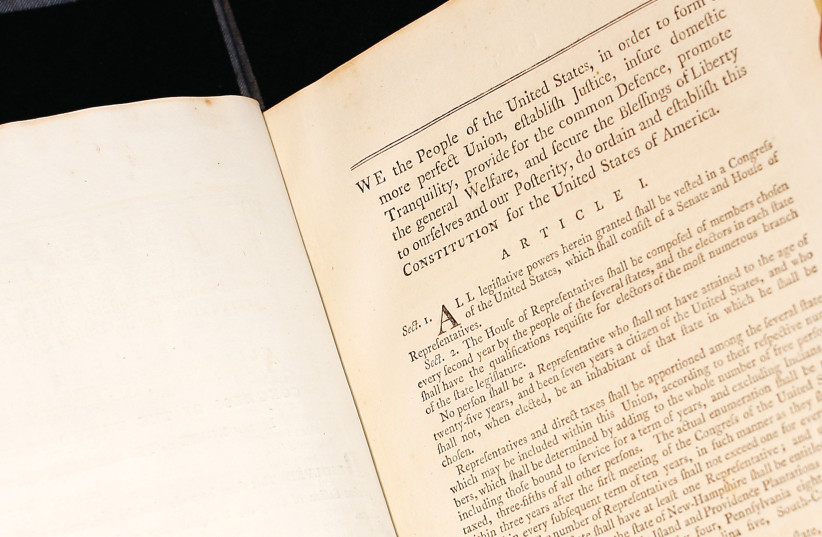Ohio court bars Hebrew Union College from selling rare books amid financial woes
(JTA) – Ohio’s attorney general obtained a court order this week prohibiting the financially strapped Hebrew Union College-Jewish Institute of Religion from selling off books from its Cincinnati library, which holds a significant collection of rare and precious items from throughout Jewish history.
Attorney General Dave Yost’s request for a temporary restraining order came in response to recent reporting in Cincy Jewfolk, a local outlet that published an in-depth article in April on the struggles of the educational institution, a seminary and university affiliated with Judaism’s Reform movement.
Cincy Jewfolk uncovered plans to sell rare books and reported that an administrator overseeing the library may have resigned after being pressured to carry out the plans. The outlet also revealed that representatives of the auction house Sotheby’s had been hired to examine the library’s holdings.
The sale of library items would potentially undermine the intent of donors to the library in violation of Ohio law, Yost said in a press release.
“These sacred texts are invaluable artifacts – religious and cultural treasures,” Yost said. “Their sale would not only betray donor trust but also may violate legal restrictions placed on the gifts. We are committed to ensuring that these irreplaceable items remain available to the public and are cared for as their donors intended.”
Though Hebrew Union College, which also has campuses in New York, Los Angeles and Jerusalem, is phasing out its Cincinnati rabbinical school, it has said the campus would remain a hub for Jewish research. It has denied it has plans to sell rare books from the library’s collection.
Rare book controversy

“The rumors that we are planning to sell our rare books, and the subsequent legal and press attention, are based on incomplete and misleading information,” Andrew Rehfeld, the president of the institution, wrote in an email to the campus community after Yost’s announcement June 4, according to Cincy Jewfolk. “We have no plans to sell or ‘deaccession’ the collection and no staff member has been asked to sell our books.”
The 14,000 rare texts held at the seminary’s Klau Library could be worth millions of dollars, according to the press release from Yost’s office. The collection is among the most significant of all Jewish libraries in the world and includes Jewish textual artifacts and historical works of philosophy, history and liturgy in more than a dozen languages.
Librarians and administrators of Jewish educational institutions throughout the country are likely paying close attention to the situation because of concern for the collection and due to the possible implications of the involvement of legal authorities as Hebrew Union College contends with financial challenges that others are also facing.
At the Jewish Theological Seminary in New York, for example, administrators have sold real estate assets as well as library items in recent years amid declining enrollment. Meanwhile, in Los Angeles, American Jewish University sold its campus earlier this year and has yet to announce what will become of the university’s rare book collection.
A court hearing to evaluate the restraining order on Hebrew Union College has been set for July 12.





Comments are closed.